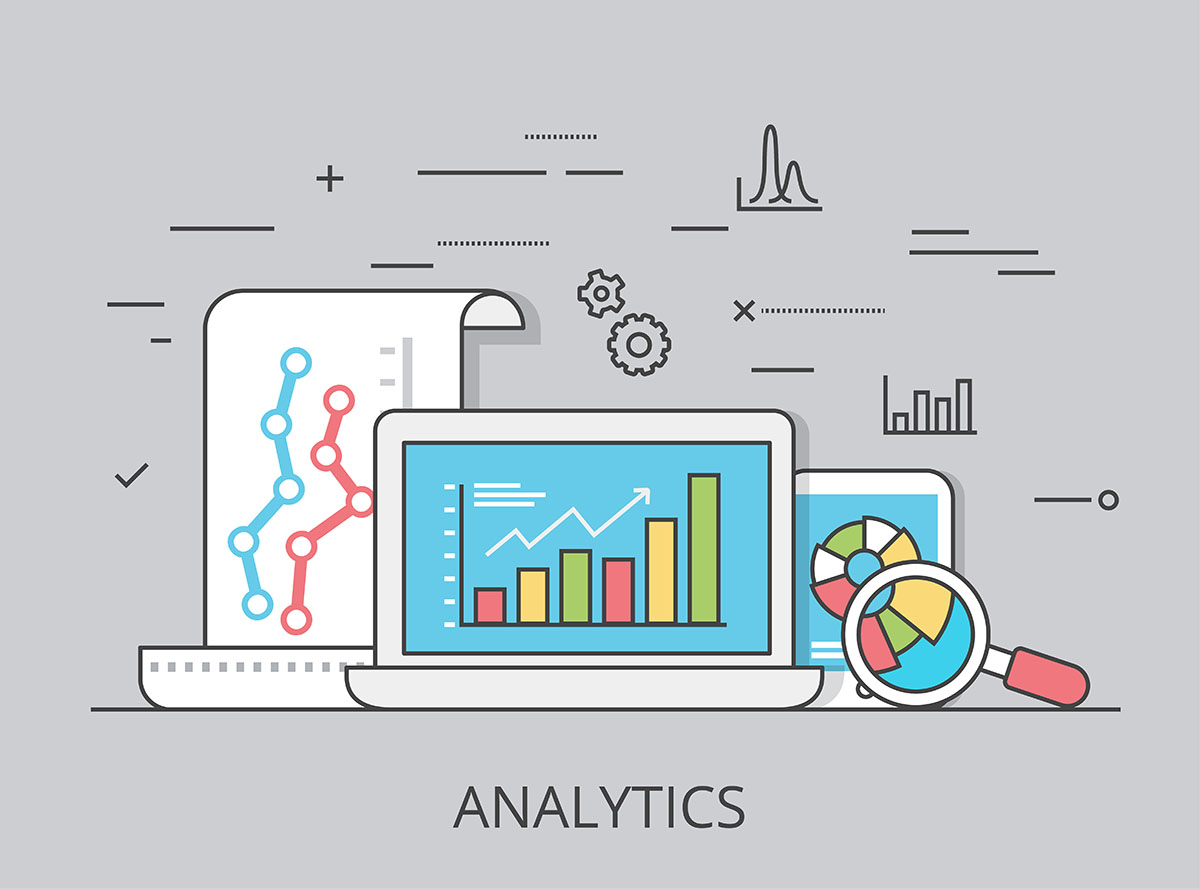Over 100,000 marketers in our community! Let's talk about your technology and marketing events/webinars in our community. Learn More
Embracing the New Horizon: 12 Ways Technology Has Impacted Global Business
Originally published: June 30, 2024 09:12:55 AM, updated: July 01, 2024 11:11:04 AM

The advancement of technology has entirely reshaped the organization by making the business process highly integrated and streamlined.
This is a major concern for small and medium-sized businesses. Run by few members, these enterprises require technology like no other.
Thus, technological advancement has allowed these businesses to run their tasks smoothly and perform better than ever.
So, are you keeping up with the technological evolution within the modern workplace?
In this article, you will discover how technology has recently impacted global business.
Here is a list of ways technology has impacted global business.
1. Greater Communication and Collaboration
Technology has significantly transformed workplace communication. The advancement has been ushering in an era of more direct, faster, and increasingly collaborative interactions.
Therefore, the advent of social networking sites, smartphones, and chat applications enables you to foster communication, allowing employees and management alike to engage in real-time, multifaceted dialogues.
Whether between employees and management or within managerial ranks, the communication process has evolved to become more immediate and cohesive.
Furthermore, tools like text, email, video chats, and video conferencing have become commonplace. Platforms such as WhatsApp, Instagram, Teams, Zoom, and Skype facilitate these tools.
This digital revolution means physical presence in the office is no longer a requisite for effective communication. This is because it allows greater flexibility and connectivity regardless of location.
2. Effective Supply Chain Management
Automation has revolutionized supply chains' operations, making them more purposeful, streamlined, and economical.
Numerous routine tasks have been automated by integrating cutting-edge technologies like artificial intelligence (AI), robotics, and machine learning (ML).
This eventual shift decreases the likelihood of human error and accelerates overall processes.
Similarly, in warehousing and distribution, robots are now deployed for various activities, including packing, picking, and sorting merchandise, which boosts precision and productivity.
Beyond simplifying operations, automation has enhanced inventory management, demand prediction, and logistics.
Therefore, this has resulted in quicker and more dependable goods delivery and reduced operational costs. Furthermore, businesses are better equipped to fulfill customer needs promptly and efficiently.
3. Derives Better Decision Making

Making decisions is a critical aspect of a manager's role.
Thus, effective decision-making allows businesses to stay ahead of their competitors, redefine their vision, and achieve their goals.
In the present competitive landscape, businesses are increasingly turning to new technologies to enhance the speed and quality of data collection. Furthermore, they enable management teams to make quicker and more accurate decisions.
In addition, technology facilitates collaboration across different teams, allowing for well-informed, joint business decisions that can drive the organization forward.
4. Increases Collaboration
The transformation in workplace collaboration brought about by technology has significantly enhanced communication efficiency.
In addition, modern business helps bridge gaps between co-workers, employees, and managers, irrespective of their physical location.
This newfound flexibility facilitates a smoother exchange of ideas and nurtures teamwork, mutual understanding, and stronger connections among team members.
With the best provider for global internet services, you can avail yourself of the best internet services, which will boost your collaboration. Similarly, leaders benefit significantly from this, allowing them to maintain close contact with their teams, leading to more effective management and leadership.
In addition, this increased collaboration extends to client relationships. This approach enables the companies to provide regular updates on project status and progress, fostering transparency and trust.
5. Offering Customization Options
Technology has ushered in a new era of customization, allowing businesses to tailor software solutions to meet their unique operational requirements.
Therefore, this paradigm shift has been particularly evident in the burgeoning popularity of facility management software across workplaces of varying sizes and sectors.
Regardless of size, each business adheres to its distinct methodology and objectives. In addition, enterprises need technological solutions that resonate with their specific workflow to support their unique operational ethos.
Customizable software's capacity to adapt and cater to diverse business needs serves as the critical technological backbone. It further empowers businesses to manage their day-to-day operations more efficiently and effectively.
This adaptability enhances operational efficiency and fosters a more dynamic and responsive workplace environment.
6. Data Analytics and Market Insights

The abundance of data has empowered businesses with valuable insights into customer behavior, market trends, and supply chain performance.
Generally, data analytics tools enable companies to analyze intricate data sets, uncover patterns, and make informed decisions.
By understanding customer preferences and market dynamics, businesses can tailor their products and services to meet specific demands.
Furthermore, data analytics has facilitated optimized inventory management, precise demand forecasting, and improved risk assessment.
All these factors led to enhanced decision-making throughout the international trade process.
7. Enhanced Customer Experience
Enhanced customer experiences are central to machine learning and artificial intelligence (AI) advancements.
A prime example of this is Amazon's recommendation engine.
The company utilizes these technologies to provide personalized shopping experiences. Similarly, it achieves this by analyzing users' browsing and purchase history, encouraging increased sales volume, and fostering deeper customer engagement and loyalty.
Moreover, the impact of AI and machine learning extends well beyond e-commerce. These technologies are making integral inroads into various sectors, including entertainment, healthcare, and finance, all of which are witnessing a shift toward personalized services.
8. Cost Reduction
In today's fiercely competitive business landscape, embracing cost reduction through technology is not just an option but a strategic imperative.
Take digital marketing campaigns, for instance. They offer cost-effectiveness and unparalleled measurability.
Therefore, the precision with which audiences can be performance tracked, targeted, and strategies optimized in real-time represents a transformative shift in advertising effectiveness.
Furthermore, beyond automation, marketing, and digitization infiltrate operations, streamlining supply chains and gradually reducing overhead costs.
9. Increase Security

In today's digital era, robust cybersecurity is essential for protecting businesses against evolving online threats.
Leading companies like CrowdStrike offer cutting-edge solutions that strengthen defenses and safeguard sensitive data.
It is crucial for maintaining customer trust and business continuity and ensuring compliance with regulations.
However, continuous innovation in cybersecurity is necessary to stay ahead of cyber adversaries and protect operations, reputation, and confidential information.
Cybersecurity measures must evolve to fortify businesses and ensure resilience as technology advances.
10. Increased eCommerce and Online Marketplace
The surge of eCommerce and online marketplaces has profoundly transformed international trade.
Businesses can now effortlessly access customers in different countries, vastly expanding their market outreach.
Similarly, online platforms like Alibaba, Amazon, and eBay have established a global marketplace, seamlessly connecting buyers and sellers worldwide. eCommerce has also simplified cross-border transactions, streamlining the international buying and selling process.
In addition, small and medium-sized enterprises (SMEs) have particularly reaped the benefits of the ease of access and global exposure offered by e-commerce platforms.
11. Scalability of Service
In the digital era, service scalability is considered seamless and orchestrated by a symphony of cloud computing.
Some leading providers, like Azure and AWS, offer dynamic cloud solutions, allowing businesses to calibrate their IT resources with the precision of a contractor. This handy resource allocation surges to greater demand and further translates to cost-effective operations.
This reallocation of resources towards strategic initiative fields the engine of progress.
Similarly, the cloud and its transformative power have become the anchor for businesses. They can easily navigate and adapt to changing market dynamics.
With advanced technology, businesses can bestow the efficiency and agility required to outmaneuver competitors in the changing landscape.
12. Innovation in Products and Services

Innovation within the products and services is the heart of every modern business. It also finds its life force within modern technology, underscoring the profound impact of technology on business growth.
The fintech sector is a vivid example of this magnificent transformation. The convergence of chatbots, mobile payments, and blockchains has fundamentally rewritten the rulebook for different business sectors.
On the other hand, trailblazing companies like Square and PayPal have been trying to harness their innovation, craft secure payment gateways, and stop disruptive payment solutions, further emphasizing the impact of technology on Them.
The above-mentioned developments have created a ripple effect across different industries.
It is not merely staying ahead. Instead, it is all about setting the pace for the upcoming days. It also showcases the advanced impact of technology on business growth.
Final Thoughts
The future depends on those who understand them. In the digital age, technology is not just a tool; it is more of a driving force behind transformative business growth.
The impact of technology within the workplace is incredible.
It has not only changed the way traditional workplaces used to operate but also made the leaders' work easier.
Business owners cannot afford to compromise with their company's productivity, security, and profitability.
By allowing new technological solutions and facilities, you can incorporate different software to ensure an optimal brand and increase profitability in the modern workplace.
Join over 100,000 SEO and Google Ads experts. We provide a community to help you engage and learn from industry experts and influencers. Join Now
Get Media Coverage for Your Business!
Get published on Google News, AP News, Benzinga, over 100+ NBC, FOX, ABC & CBS affiliate sites and more.



